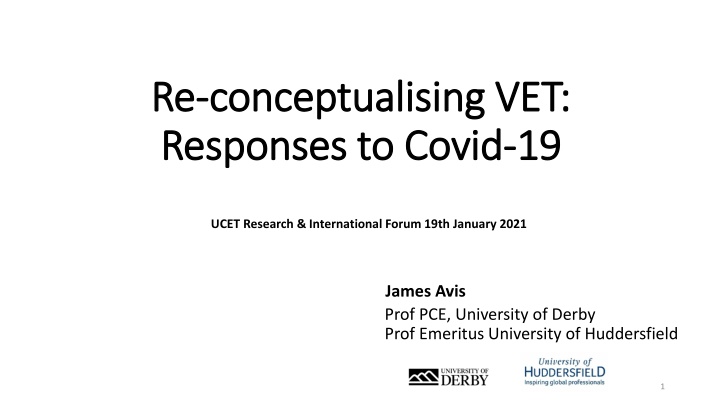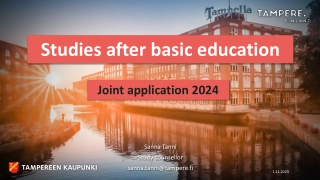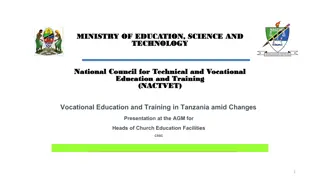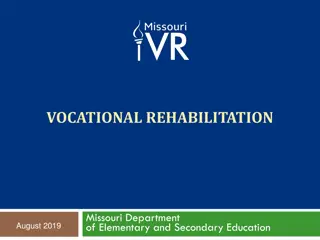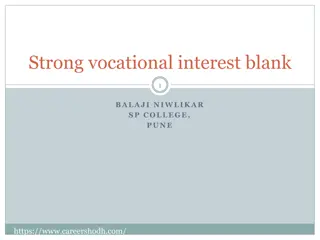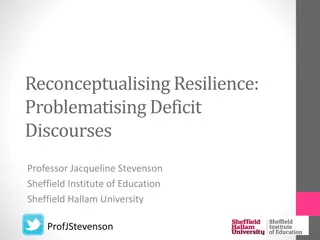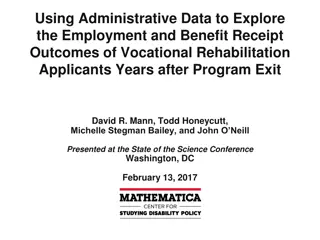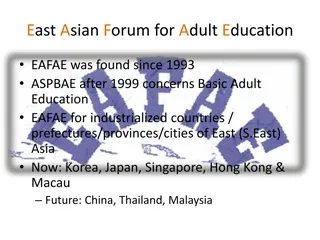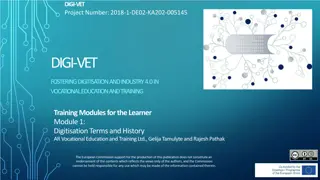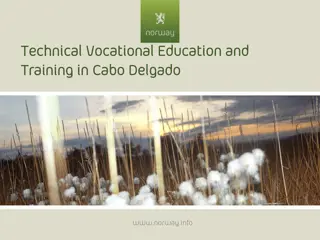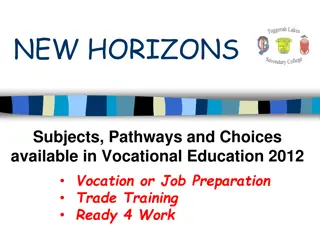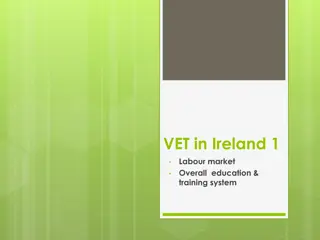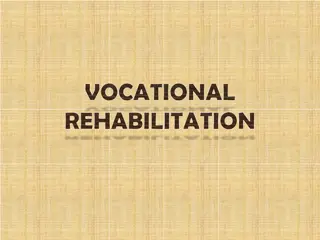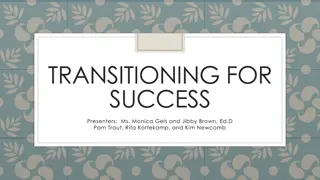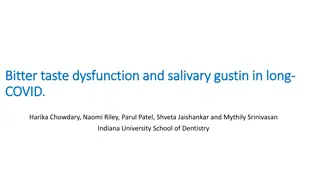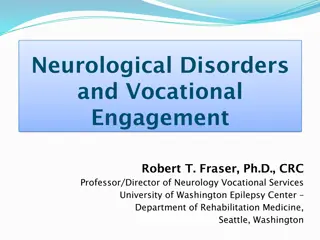Reconceptualising Vocational Education & Training: Responses to Covid-19
This research and forum presentation delves into the impacts of Covid-19 on Vocational Education & Training (VET), exploring responses and challenges within the socio-economic context. The discussion reflects on the implications of neoliberalism, labor market dynamics, and radical inequality amidst the pandemic. Critical viewpoints on the crisis of care and the need for new societal relations are also highlighted. The content provides insights into redefining VET practices in the current global scenario.
Download Presentation

Please find below an Image/Link to download the presentation.
The content on the website is provided AS IS for your information and personal use only. It may not be sold, licensed, or shared on other websites without obtaining consent from the author.If you encounter any issues during the download, it is possible that the publisher has removed the file from their server.
You are allowed to download the files provided on this website for personal or commercial use, subject to the condition that they are used lawfully. All files are the property of their respective owners.
The content on the website is provided AS IS for your information and personal use only. It may not be sold, licensed, or shared on other websites without obtaining consent from the author.
E N D
Presentation Transcript
Re Re- -conceptualising VET: conceptualising VET: Responses to Covid Responses to Covid- -19 19 UCET Research & International Forum 19th January 2021 James Avis Prof PCE, University of Derby Prof Emeritus University of Huddersfield 1
Avis, J. Atkins, L. Esmond, B. McGrath, S. 2021. Re-conceptualising VET: Responses to Covid-19, Journal of vocational education and training https://doi.org/10.1080/13636820.2020.1861068 2
Socio-economic context Interregnum and neoliberalism The Labour market and Covid VET, Labour and Worklessness Issues/question arising from the discussion -VET 3
the free market system has imploded Mason 2019:xii 4
the old is dying and the new cannot be born Gramsci, 1971:276 5
a new way of relating economy to polity, production to reproduction, human society to nonhuman nature. Neoliberalism in any guise is not the solution but the problem Fraser (2019:38) 6
the arrival of entrepreneurs eager to capitalize on global suffering, all testify to the rapidity with which radical inequality, which includes nationalism, white supremacy, violence against women, queer, and trans people, and capitalist exploitation find ways to reproduce and strengthen their powers within the pandemic zones. Butler 2020:online 7
The crisis of care is currently a major topic of public debate. Often linked to ideas of time poverty , family-work balance , and social depletion , it refers to the pressures from several directions that are currently squeezing a key set of social capacities: those available for birthing and raising children, caring for friends and family members, maintaining households and broader communities, and sustaining connections more generally. Fraser 2016:99 8
What the trauma has shown us, though, cannot be unseen. A carless Los Angeles has clear blue skies as pollution has simply stopped. In a quiet New York, you can hear the birds chirp in the middle of Madison Avenue. Coyotes have been spotted on the Golden Gate Bridge. These are the postcard images of what the world might be like if we could find a way to have a less deadly daily effect on the planet Gambuto (2020:online 9
McGrath (2020) focuses on SDG8 for VET and highlights the unsustainability at its heart. SDG8 reads, Promote sustained, inclusive and sustainable economic growth, full and productive employment and decent work for all. Sustained, inclusive and sustainable economic growth under capitalism is simply impossible. 10
Who is at risk? Work and automation, in the time of Covid-19 Wallace-Stephens, F. Morgante, E. 2020 RSA 11
Women, who hold 70 per cent of jobs in the health and social care sectors and are therefore often on the front line of the response to the crisis (they are also over- represented in the informal service sector and in the labour-intensive manufacturing sector); Informal economy workers, casual and temporary workers, workers in new forms of employment, including those in the gig economy ; Young workers, whose employment prospects are more sensitive to fluctuations in demand; Older workers, who even in normal times face difficulties in finding decent work opportunities and are now burdened with an additional health risk; Refugees and migrant workers, especially those engaged as domestic workers and those working in construction, manufacturing and agriculture [and we could add undocumented workers]; Micro-entrepreneurs and the self-employed particularly those operating in the informal economy, who may be disproportionately affected and are less resilient. 12
Education plays a key role in the perpetuation of the capital relation; this is the skeleton in capitalist education s dank basement. It is just one of the many reasons why, in contemporary capitalist society, education [and we might add Vocational Education and Training] assumes a grotesque and perverted form. It links the chains that bind our souls to capital. 13
For References see: Avis, J. Atkins, L. Esmond, B. McGrath, S. 2020 (in Press). Re-conceptualising VET: Responses to Covid-19, Journal of vocational education and training Avis, J. 2021. (in press) Vocational Education in the Fourth Industrial Revolution: Education and Employment in a Post-Work Age, London, Palgrave Pivot Fleming, P. 2017 The death of homo economicus, London, Pluto Press Fraser, N. 2019. The Old is Dying and the New cannot be Born, London Verso Fraser, N. Jaeggi, R. 2018. Capitalism: a conversation in critical theory. Cambridge polity Gorz, A. 1967. Strategy for Labour, Toronto, Beacon Press Gramsci, A. 1971. Prison Notebooks, London Lawrence and Wishart Pfannebecker, M. Smith, J. A. 2020 Work Want Work, London, ZED Wallace-Stephens, F. Morgante, E. 2020. Who is at risk? Work and automation, in the time of Covid-19, https://www.thersa.org/reports/work-automation-covid 14
